Search Results for Tag: Media
Arctic Frontiers: Humans in the Arctic
“Development in the Arctic: Upcoming opportunities and challenges and how they may be met to ensure viable economic growth and societal and environmental sustainability”. That’s what’s on the agenda at this year’s Arctic Frontiers conference in Norway’s “Arctic Capital” from Jan. 19th onwards. If you think that sounds like a tall order – you’re not the only one. And it provides unlimited scope for debate and exchanges of opinion. The Arctic is changing fast, with the region warming at least twice as fast as the global average. Political and economic interest in a region that was once regarded as a remote white wilderness at the “back of beyond” is growing rapidly and continuously now that climate change is opening shipping routes and the possibility of accessing oil, gas and minerals more “easily”. Easily in inverted commas because the region remains dangerous, with cold temperatures, winter darkness and still plenty of ice and snow.
Is economic growth and development in the Arctic compatible with protecting traditional lifestyles and the fragile ecosystems up north? I expect to hear some very differing views on that in Tromsö over the coming week. In the media here in Germany, there has been a spate of reports recently on the possible benefits of climate change to people in the High North. Fish moving up from the Atlantic, employment in oil and gas exploration and mining, improved growing conditions for food are amongst the benefits talked about. At the same time, concern continues unabated over the possible environmental impact of pollution from increased commercial and industrial activities.
The number of government ministers attending the Tromso event suggests the level of interest. The host country Norway is sending the Prime Minster Erna Solberg and the ministers for Fisheries and Health. There is bound to be a lot of interest in the speech by Greenland’s Prime Minister Aleqa Hammond, following controversial decisions and debates about uranium mining and other issues. Of course Greenland has a huge interest in development to fund possible independence from Denmark. Finland and Iceland will be represented by their Foreign Ministers. The Chair of the Inuit Circumpolar Council, Aqqaluk Lynge and the President of the Sami Parliament of Norway Aili Keskitalo will be representing indigenous Arctic peoples on the podium at the policy sections.
Here in Germany I have found a heightened interest in coverage of Arctic issues, which were once regarded as very much “off-beat” and of specialist interest. I will do my best to provide that from Arctic Frontiers in Tromsö here on the Ice Blog, on twitter @iceblogger and on www.dw.com over the next week.
Some more background reading from me:
Russia and Canada rippling muscles in the Arctic?
Greenpeace versus Russia – the tip of the iceberg?
All Eyes on the Arctic Council
Business opportunities boom in the Arctic
More Arctic weather in a warming world?
Polar ice sheets melting faster than ever
Santa in distress in a melting Arctic
As I was floating around our local swimming pool to the sound of “Rudolph the red-nosed reindeer” last night, the thought of reindeer in water took my thoughts up north. Poor old Santa must be having a worrying time. Snow and sleighs are the basis of his business. If anybody has to be concerned about what climate change is doing to the Arctic, it has to be Santa. His snowy wonderland is melting twice or even three times as fast as the rest of the planet. Reindeer are threatened by climate change, a new report confirms.
Maybe he is already thinking about some alternative transport. Marine animals to get across an increasingly watery north? Walruses? Whales? Dolphins? But he’d have problems putting them out the back to graze while he distributes the presents and sips his sherry. And in the long-term their food sources could be increasingly problematic with ocean acidification threatening so many species. A hi-tech climate-neutral alternative like the solar plane? Not much good at night. And not nearly as much fun as reindeer.
Then come the territorial disputes, with Canada and Russia arguing over who owns the North Pole. Santa would not want to be caught in the crossfire. And landing on rooftops is becoming increasingly hazardous. Does it count as hooliganism?
His Russian partner “Father Frost” (aka Grandfather Frost or Jack) must be getting a bit worried as well. He’s said to be building a giant freezer to keep Siberia cool – powered presumably with oil and gas from the Arctic.
I’m not the only one to be concerned. Greenpeace have come up with a “Save Santa’s Home” campaign, and a whole set of electronic Christmas cards drawing attention to the plight of our jovial white-bearded gift-bringer. And if you haven’t seen Santa’s Message on video, have a look. And remember we British have a tongue-in-cheek kind of sense of humour. CNN missed that, I think, when they broadcast their own story about the video (although it is not without a sliver of its own biting wit). Reporter Jeanne Moos reminds Santa that “An organisation of climate change sceptics” is talking about “recovering Arctic ice”. The “other side” does (in the interests of unbiased journalism no doubt 😉 ? get quoted in the report. Moos talks about “those who believe in global warming” as if the majority who accept the findings of something like 99% of scientists, the UN, the IPCC… belonged to a weird sect.
 Santa, I’m with you and all those who are interested in protecting the Arctic from climate change and pollution. Rudolph, Dancer, Prancer and the rest of you guys – keep up the good work. You make millions of kids (and a lot of grown ups) happy every Christmas. Here’s hoping the world will take some steps in 2014 that will preserve your frozen north home for generations to come.
Santa, I’m with you and all those who are interested in protecting the Arctic from climate change and pollution. Rudolph, Dancer, Prancer and the rest of you guys – keep up the good work. You make millions of kids (and a lot of grown ups) happy every Christmas. Here’s hoping the world will take some steps in 2014 that will preserve your frozen north home for generations to come.
Merry Christmas everybody! The iceblogger will be back in January 2014. Keep your eye out for the odd tweet @iceblogger
Canada and Russia rippling muscles in the Arctic
Enjoying my morning tea the other day, my attention was caught by an Arctic headline in our local newspaper. When the Arctic makes its way into a publication I read rather for its regional flavour than international current affairs, I get the feeling there are certainly things afoot. Or is it just that stories involving Russia and any possible military conflict appeal to the public at the moment? The story was the latest sabre-rattling by Vladimir Putin, saying Russia would be stepping up its military presence in the Arctic to defend the country’s geopolitical interests.
The Kremlin chief has been turning into a bit of a public enemy number one here, with the arrest of the “Arctic 30” and refusal to comply with the international maritime tribunal, the pressure on the Ukraine to keep away from the EU and the publicity of the treatment of homosexuals in the run-up to the winter Olympics. Now the big, bad Russians are sending soldiers up to the North Pole, that iconic supposedly untouched frozen waste at the top of the planet, which belongs to no country. Not so far anyway.
We remember how a Russian submarine planted its flag on the seabed under the North Pole in 2007. Back in 2001 Russia submitted a claim to extend its nautical borders to the UN commission on the limits of its continental shelf. In the meantime, the rapidly warming climate has increased the international race to get at Arctic resources and develop an infrastructure to profit from increased shipping through the area.
I do find it a matter of concern that Russia is re-opening military bases in the Arctic and has sent warships up there for the first time in more than 20 years. Luke Harding in the Guardian links Russia’s renewed interest in the region directly to Putin’s ascent to the Kremlin in 2000. In contrast to the policies under Dmitry Medvedev, “Putin’s Arctic rhetoric has been hawkish”, Harding writes. The same can be said of Canada’s conservative prime minister Stephen Harper. Canada has just submitted its claim to the UN Commission and says it will actually be laying claim to the North Pole soon. As current chair of the Arctic Council, Canada has been stressing the need to develop the region. This week I talked to a Canadian colleague, who was flabbergasted by the latest Canadian antics concerning the High North. His scepticism was based on what he sees as a huge discrepancy between the might of Putin’s Russia and a Canada with limited military resources.![]()
![]() Let us hope that military power is not what will decide the struggle for the North Pole and the Arctic in general. If the countries put as much effort into reducing emissions and developing climate-friendly technologies as into military developments – and I am thinking of political rhetoric and pr as much as actual spending – the Arctic might be able to continue to be the remote, frozen area at the top of the world with its unique ecosystems preserved for future generations.
Let us hope that military power is not what will decide the struggle for the North Pole and the Arctic in general. If the countries put as much effort into reducing emissions and developing climate-friendly technologies as into military developments – and I am thinking of political rhetoric and pr as much as actual spending – the Arctic might be able to continue to be the remote, frozen area at the top of the world with its unique ecosystems preserved for future generations.![]()
Future 360 – Masdar revisited – in video!
During my trip to Abu Dhabi I met Sarah Backhouse, the founder of Future 360, which describes itself as “A media company and discovery platform dedicated to clear technology”. The idea is ” to use video to tell powerful stories about why cleantech matters”. There is a vey enthusiastic video portrait of Masdar city on the website. Fun to watch! And I admire how you get so much into such a short piece of video, Sarah.
Fresh wind for the climate?
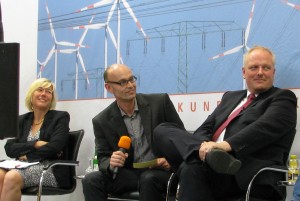
My colleague Gero Rueter chairing the panel, here with Syliva Pilarsky-Grosch, vice-president of the German Bundesverband WindEnergie and Ulrich Kelber, member of the Bundestag and SPD expert on environment and energy issues.
The World Wind Energy Conference started in Bonn today, focusing attention on the role of decentralized wind power. It’s an interesting topic at this particular time with a big debate going on here in Germany over the role large offshore wind parks should play in securing a renewable energy supply. At a kick-off panel discussion organised last night by the Friedrich Ebert Foundation and the World Wind Energy Association, one of the main conference organisers, the speakers provided plenty of arguments in favour of smaller, decentralized systems with different ownership models, from citizens’ groups to local authorities, rather than large offshore parks run by big industry. At today’s official opening ceremony in the Bonn Conference Centre, a federal government representative, Secretary of State in the Environment Ministry Jürgen Becker, made the case for having both. The main problem with the big offshore parks at the moment is how to successfully connect them to the grid and get the power from Germany’s North Sea coast to where it’s needed farther south. Interesting discussions ahead. There are large delegations from China and Canada attending the conference, countries with a key interest in wind power. I bumped into a colleague from Japan this morning, who said he was covering the conference because of the urgent need to develop renewables in Japan after Fukushima.



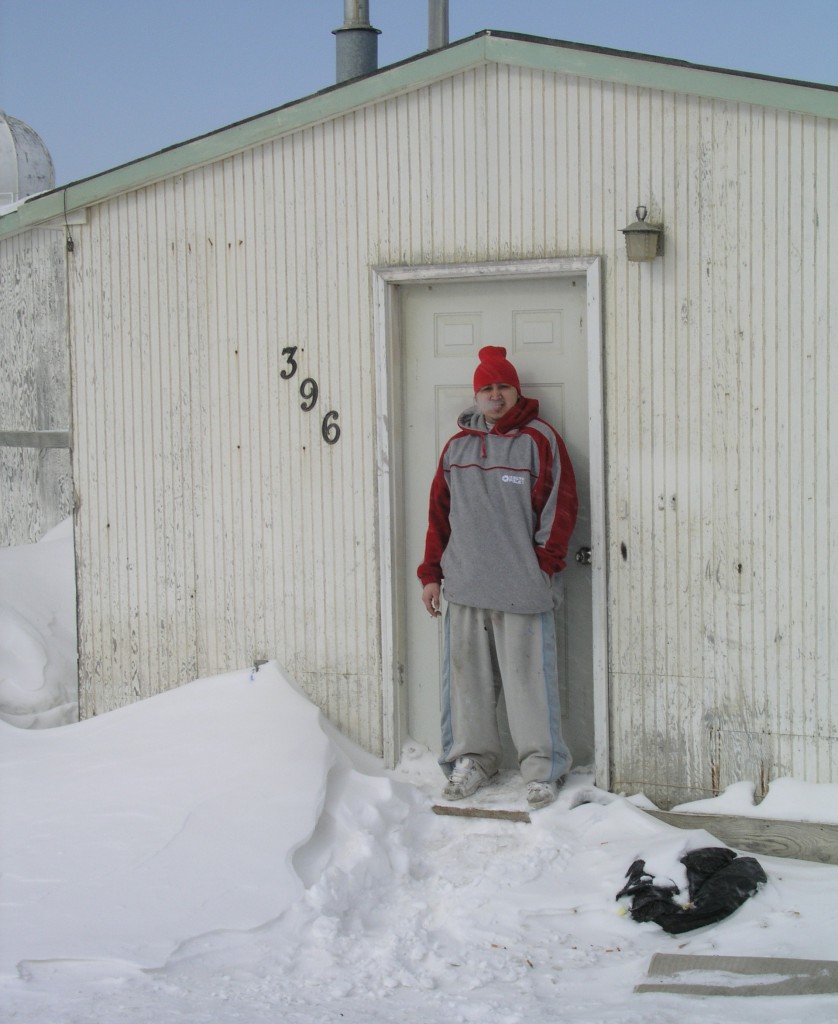

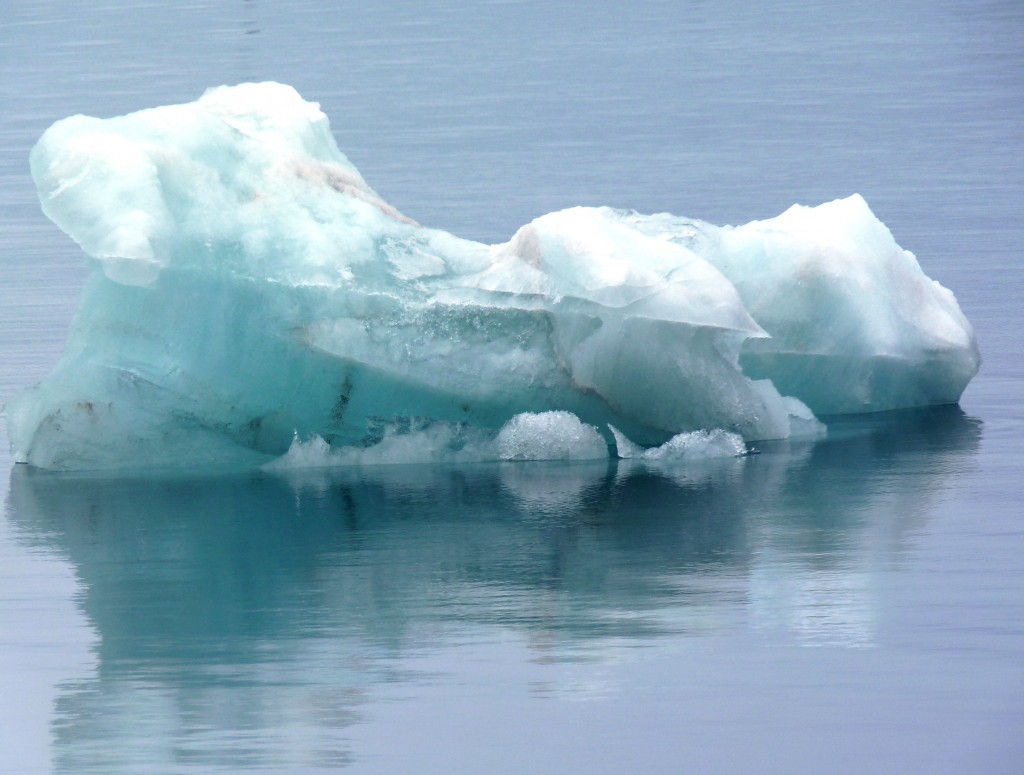
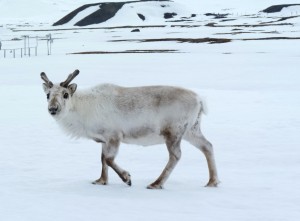

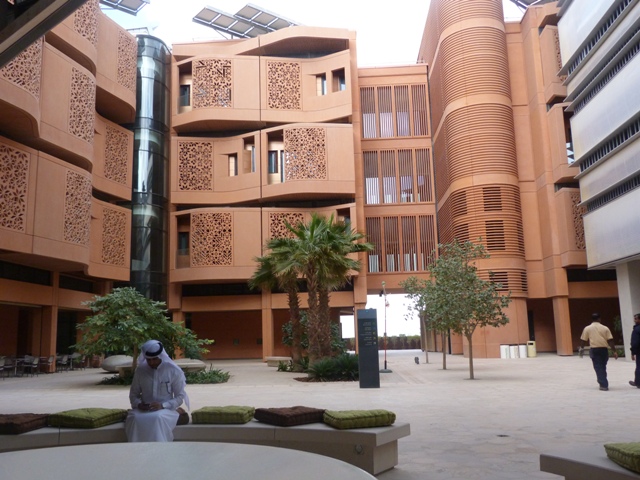
















Feedback